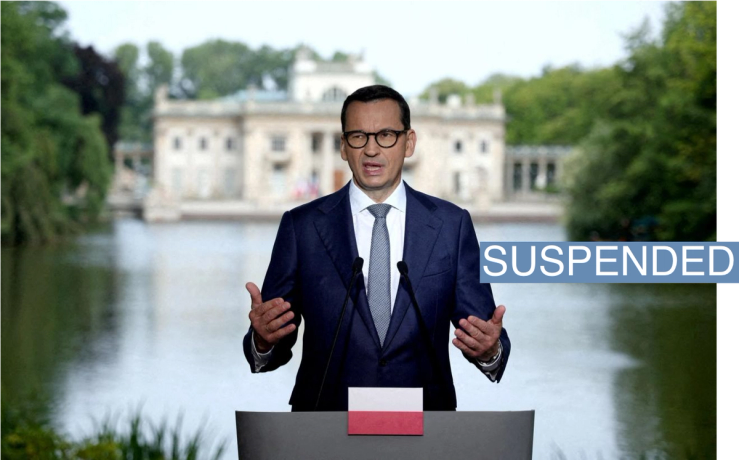The News
A diplomatic dispute between Ukraine and Poland over a ban on grain imports has escalated. Polish Prime Minister Mateusz Morawiecki said Wednesday that his country, one of Ukraine’s strongest allies, would halt the transfer of weapons to Kyiv.
On Thursday, the Polish government sought to walk back the remarks, saying that it would carry out pre-agreed shipments.
SIGNALS
Morawiecki's Wednesday comments followed a broader dispute over shipments of Ukrainian grain. The full-scale invasion of Ukraine by Russian forces last year shuttered marine export routes and sent shipments overground through the European Union. Concerns mounted amongst local farmers in Bulgaria, Hungary, Poland, Romania, and Slovakia that Ukrainian grain was driving down their prices, and the EU implemented an import ban to mitigate. While the bloc has not renewed the ban, Warsaw, Budapest, and Bratislava have kept it in place, angering Kyiv. Ukrainian President Volodymyr Zelenskyy criticized the continued ban, saying that European allies were engaging "in a political theatre — making a thriller from grain."• 1
Warsaw has likely kept the export ban in place over concerns that Morawiecki's Law and Justice (PiS) party is facing a tough reelection campaign next month. Polish farmers staged protests against Ukrainian grain this summer, and the government fears further unrest ahead of what is likely to be a pivotal election.• 2
Deutsche Welle, Ukrainian grain: Why are eastern EU members banning imports?
On social media platform X, international relations analyst Daniel Hegedus wrote that one "can see here how the short-sighted and short-term political interests of a radical-right party in power trumped Polish foreign policy culture and strategic thinking. And also how autocrats in power prioritize regime interest over national interest." He added that "mitigating the damage done will be a tantamount task even for a new, democratic Polish government."• 3



